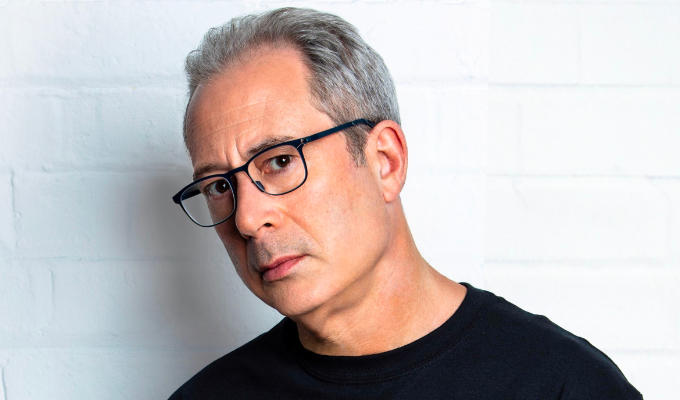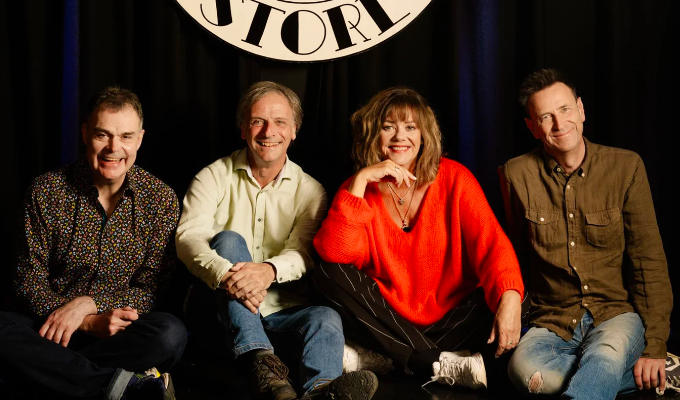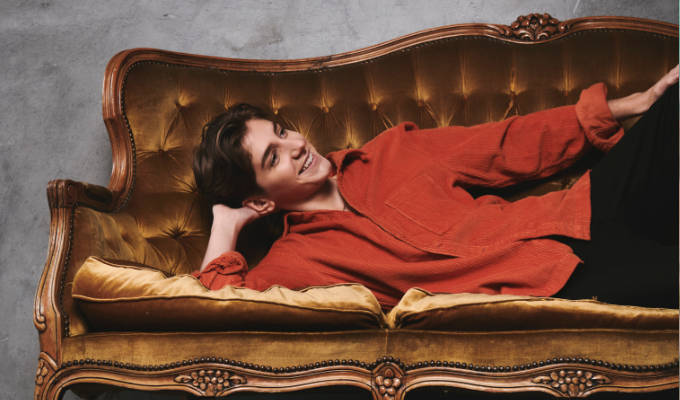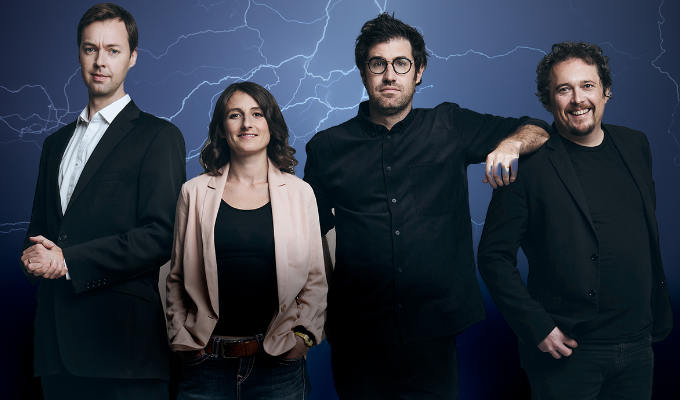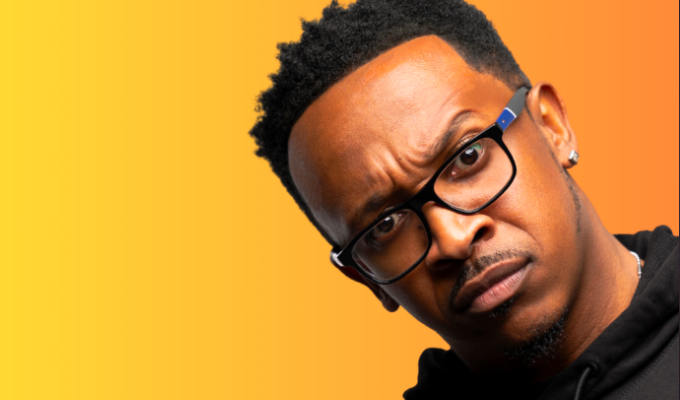
Stand-up's the best job in the world!
So let's not get too jealous and competitive at the Fringe, says Gearóid Farrelly
If you ask any comedian about their job they will inevitably say that we have the best job in the world and we do.
I remember the first time I realised this. It was a Tuesday and I was on a bus from Lucan, a suburb of Dublin, to the city centre where I worked in an insurance company. I had a spot that night at an open-mic and was reading over my set on the bus. I came up with an idea for a bit that I thought was really funny. I wish I could remember what bit it was. It made me laugh and I spent the whole day excited about it. I laboured over whether I should put it into the golden seven minute set that I had at that point.
That night it the gig was going well, so I did. I hadn’t intended to, but when I did, it was like being hit by a bolt of lightning. The audience were laughing at something I had thought up just this morning. When I finished up I walked to the bus stop still sweaty and basking in that post-good-gig-glow that is so heady in the early days of comedy. That bit didn’t exist until that day. I wrote it that morning and that night a room full of people laughed at it and enjoyed it and clapped. It was mind-blowing – and that was it for me.
Comedy is my passion, I love writing writing it and performing it, I love feeling like a calculated bomb-maker watching his explosions go off from the stage. I love it.
But like anything else addictive it can bring out the worst in us. I love comedy but the actual business side of it bores me to tears. Out of all of the jobs I have had the work chats in comedy are by far the most mind-numbing.
Oh, don’t get me wrong, I love a gossip but a work chat always ends up tedious. I don’t know why that is. I think with other jobs you expect the work chat to be dull because the jobs were also dull. But in comedy I find the forensic conversations about clubs and reviews and sales and techs and agents equally dull. I feel my eyes glaze over in conversations about it. Even the war stories get old very fast and they really do the rounds.
When I started comedy in Ireland, it was very competitive among comedians. It was an industry driven by television. It felt like you competed on the circuit to impress television producers to get on a TV show that would in time catapult you to selling big rooms or further telly work.
If someone got the job, then others didn’t, resulting in countless ‘should have been me…’ stories, both public and private. There was a lot to play for and this produced some great comedians who followed that route and other great comedians who circumvented it. It was ferociously competitive, every gig felt like a standup competition until the TV shows were cancelled and things froze and nobody pushed through.
Thankfully, with podcasting and social media we don’t have to go to work and wish each other dead. Today, we are either looking for an audience or talking directly to the one we already have. Comedians coming to prominence now don’t need to have that feeling of being in vicious competition with each other.
But we still have it don’t we? We all want to be the one who does the best. The one who closes. The one whose name is in the biggest font. The one in the group of chatting comics that the audience member approaches.
We all want it, of course we do! We’re human. But as much as we want it, and even in the darkest parts of our brains, need it, we equally should be telling ourselves that we don’t. We should take a second to explain to ourselves in very real terms that it isn’t important. Because it isn’t. We’ve all seen ego-sized rattles being propelled from prams at some point. It’s never pretty. Sometimes it’s downright embarrassing and equally sometimes it is entirely justified, because as a comedian our ego protects us as much as it betrays us.
But the Edinburgh Fringe is a strange beast. Thousands of comedians flock to a city in Scotland to put on shows for a month, even just that is a terrible idea.
Throw in the critics, the potential opportunities, a month of near poverty, the exorbitant costs and what you have is recipe for a comedy apocalypse. When I’m at the Fringe I have three states; nervous and stressed, in love with life, and really looking forward to going home. The middle one usually lasts for less than one day in middle of week 2.
It feels like we’re all pitted against each other. Brother will kill brother, sister will kill sister, flyering open spot will pick fight with busker. We subconsciously (for most) try to establish a pecking order when we meet other comics. We ask potentially hurtful questions like ‘How many did you have in’, ‘Have you had any reviews?’ Or ‘have you been to the gym like you said you would?’
You know what’s better than trying to always trying to topple each other? Having friends. Pals that are doing the same job and who you can roll your eyes with and acknowledge that a lot of the things that send us spiralling into chaos at the Fringe can, in the grand scheme of things, seem a bit silly when you take a breath and really think about them.
Being dismissive of the doors that slam in your face doesn’t mean you take your work less seriously. Those doors will open at some point but nothing is to be gained from stressing about them.
I’m not talking about the death of ambition here. Comedians have to commit ferociously to their jobs, and work hard and expect reward and stop talking about dreams and start talking about objectives. All of that is really important.
But so is distance from it and being able to see the wood for the trees. At the Fringe there are enough mechanisms defining us by our comedy metrics but as comics we really shouldn’t do that to each other. We have to remember that it’s actually ok to talk to someone lower on the comedy food-chain and even look at their face when doing it. They are actually people too.
It’s also fine to stop a comic balls-deep in a monologue version of their CV and say ‘c’mon … chill … have a chip.’ It’s OK to be nervous or not enjoying it and irrationally feeling you don’t measure up. The last time I did a full run I sat up in bed one night and did an online assessment to see if I would be suitable for nursing. As it happens, I wouldn’t, so that was that.
Enjoy the Fringe at all costs. Another comedian’s success doesn’t cost you anything and if your brain is telling you that it does, you need to actively try and switch that off because you are on a slippery slope road to being one of those comedians that everyone takes a deep breath before talking to.
There is a point at the fringe where 99.9 per cent of the comics performing realise that we will not be the toast of the Fringe. We will not be the greatest discovery since the pie shop on Leith Walk that stays open 24 hours. We will go home with a well-worked hour and probably debt but if we do it right we’ll also have nice memories, of a nice time.
All of us are, more or less, in the same boat. We should remember this when we feel ourselves sliding into jealousy or seeing each other as pawns to be stepped over, competitors to be annihilated. We should ask each other how we are doing, slap each other on the back when we do well, and when we don’t remind each other that it doesn’t matter what anyone says; you ARE funny.
We should find for each other that crazy level of self-belief that we had the first time the bomb went off and we knew that this was the life for us. The self-belief that we all have when we sign up for the fringe but that sometimes gets lost when we get a two out of five from funnymcgigglepants.com (not a real website, no point in clicking to see if you can get them in).
And yes we should remind each other that we have the best job in the world.
• Gearóid Farrelly’s stand-up show Gearóid Rage is at Assembly George Square at 7.20pm
Published: 31 Jul 2024

